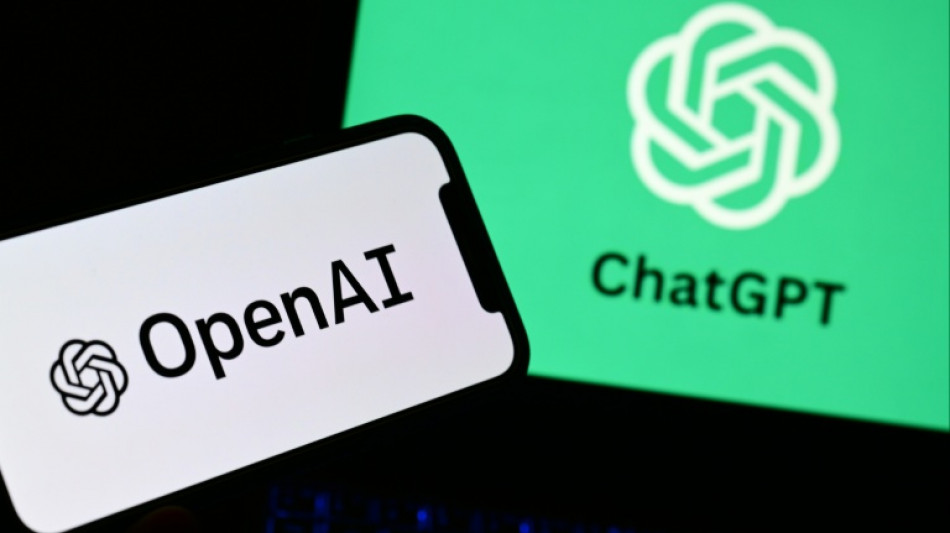
-
 UK court jails Chinese bitcoin fraudster for over 11 years
UK court jails Chinese bitcoin fraudster for over 11 years
-
Fanfare as Guinea launches enormous Simandou iron ore mine

-
 Iraqis vote in general election at crucial regional moment
Iraqis vote in general election at crucial regional moment
-
Shock follows carnage after suicide bombing in Islamabad

-
 Ford returns to pull England strings against All Blacks
Ford returns to pull England strings against All Blacks
-
Stocks mixed as end to US shutdown appears closer
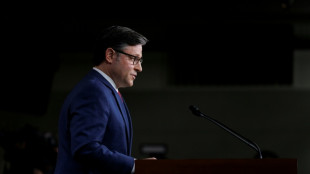
-
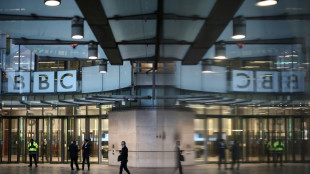 BBC must 'fight' for its journalism, outgoing chief says amid Trump lawsuit threat
BBC must 'fight' for its journalism, outgoing chief says amid Trump lawsuit threat
-
Atalanta turn to Palladino after Juric sacking

-
 'Sayyid says': Influential Shiite cleric's supporters boycott Iraq vote
'Sayyid says': Influential Shiite cleric's supporters boycott Iraq vote
-
'It's un-British': lawmakers raise concerns about aquarium penguins

-
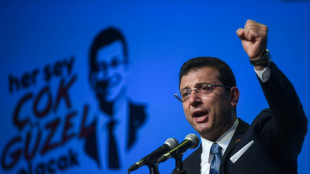 Prosecutor files 142 charges against Istanbul mayor, a top Erdogan critic
Prosecutor files 142 charges against Istanbul mayor, a top Erdogan critic
-
Agha hundred lifts Pakistan to 299-5 in 1st Sri Lanka ODI

-
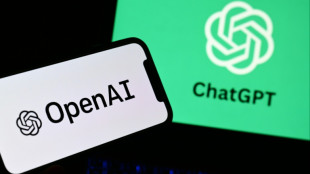 German court rules against OpenAI in copyright case
German court rules against OpenAI in copyright case
-
Calls for 'mano dura' as crime-rattled Chile votes for president

-
 Pakistani Taliban claim deadly suicide attack in Islamabad
Pakistani Taliban claim deadly suicide attack in Islamabad
-
BBC grapples with response to Trump legal threat
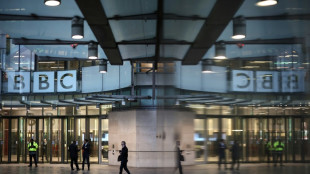
-
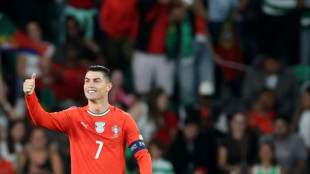 Cristiano Ronaldo says 2026 World Cup 'definitely' his last
Cristiano Ronaldo says 2026 World Cup 'definitely' his last
-
Trump says 'we've had a lot of problems' with France
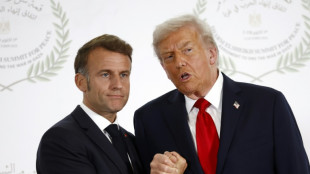
-
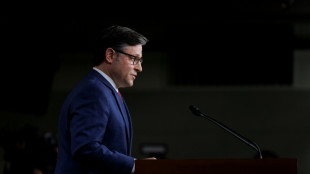 Stocks mostly rise as end to US shutdown appears closer
Stocks mostly rise as end to US shutdown appears closer
-
'Splinternets' threat to be avoided, says web address controller

-
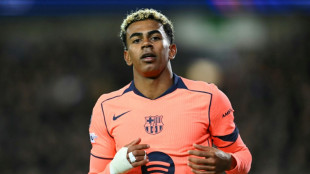 Yamal released from World Cup qualifiers by 'upset' Spanish federation
Yamal released from World Cup qualifiers by 'upset' Spanish federation
-
China's 'Singles Day' shopping fest loses its shine for weary consumers

-
 Suicide bombing in Islamabad kills 12, wounds 27
Suicide bombing in Islamabad kills 12, wounds 27
-
Philippines digs out from Typhoon Fung-wong as death toll climbs

-
 Iraqis vote in general election at a crucial regional moment
Iraqis vote in general election at a crucial regional moment
-
Asian stocks wobble as US shutdown rally loses steam
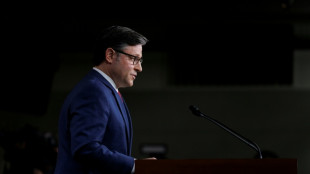
-
 UK unemployment jumps to 5% before key govt budget
UK unemployment jumps to 5% before key govt budget
-
Japanese 'Ran' actor Tatsuya Nakadai dies at 92
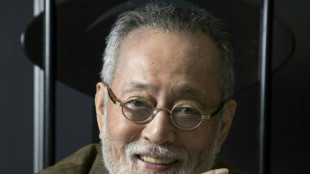
-
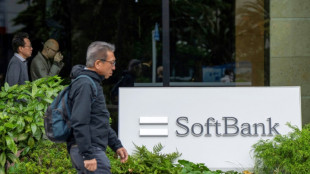 AI stock boom delivers bumper quarter for Japan's SoftBank
AI stock boom delivers bumper quarter for Japan's SoftBank
-
Asian stocks struggle as US shutdown rally loses steam
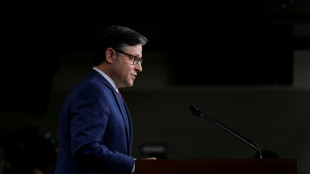
-
 India probes deadly Delhi blast, vows those responsible will face justice
India probes deadly Delhi blast, vows those responsible will face justice
-
Pistons win streak hits seven on night of NBA thrillers
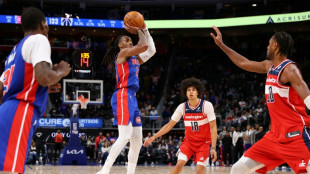
-
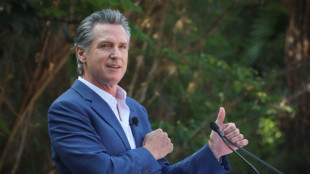 US state leaders take stage at UN climate summit -- without Trump
US state leaders take stage at UN climate summit -- without Trump
-
Burger King to enter China joint venture, plans to double stores

-
 Iraqis vote in general election in rare moment of calm
Iraqis vote in general election in rare moment of calm
-
Philippines digs out from Typhoon Fung-wong as death toll climbs to 18

-
 'Demon Slayer' helps Sony hike profit forecasts
'Demon Slayer' helps Sony hike profit forecasts
-
Who can qualify for 2026 World Cup in next round of European qualifiers
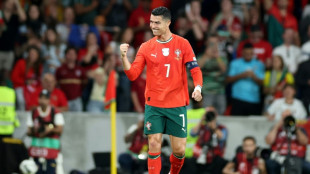
-
 Ireland's climate battle is being fought in its fields
Ireland's climate battle is being fought in its fields
-
Sony hikes profit forecasts on strong gaming, anime sales

-
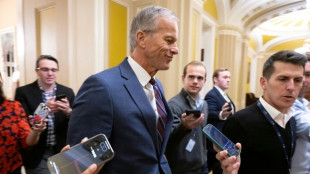 End to US government shutdown in sight as stopgap bill advances to House
End to US government shutdown in sight as stopgap bill advances to House
-
'Western tech dominance fading' at Lisbon's Web Summit

-
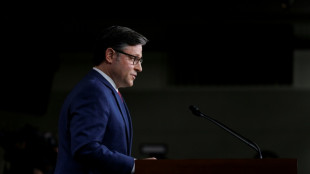 Asian stocks rise as record US shutdown nears end
Asian stocks rise as record US shutdown nears end
-
'Joy to beloved motherland': N.Korea football glory fuels propaganda
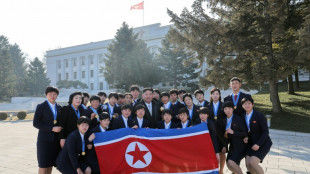
-
 Taiwan coastguard faces China's might near frontline islands
Taiwan coastguard faces China's might near frontline islands
-
Concentration of corporate power a 'huge' concern: UN rights chief

-
 Indian forensic teams scour deadly Delhi car explosion
Indian forensic teams scour deadly Delhi car explosion
-
Trump says firebrand ally Greene has 'lost her way' after criticism
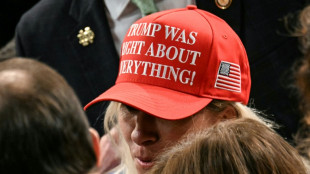
-
 Show shines light on Mormons' unique place in US culture
Show shines light on Mormons' unique place in US culture
-
Ukraine, China's critical mineral dominance, on agenda as G7 meets
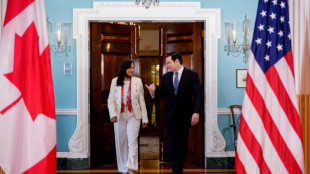

German court rules against OpenAI in copyright case
A German court ruled Tuesday that OpenAI has infringed copyright law by using song lyrics to feed its chat models in a case that could have wide implications for European artists.
The Munich court found that the maker of ChatGPT was not entitled to use song lyrics to train its artificial intelligence without licences, and that the artists who wrote them are entitled to compensation.
"Both the memorisation in the language models and the reproduction of the song lyrics in the chatbot's outputs constitute infringements of copyright law," the court ruled.
The case was filed in November 2024 by German music rights body GEMA on behalf of the artists behind nine German songs.
GEMA, which represents more than 100,000 composers, songwriters and publishers, accused OpenAI of reproducing protected song lyrics without having purchased licences or paid the creators.
San Francisco-based OpenAI argued it had not broken the law because its language models do not store or copy specific data but rather reflect in their settings what they have learnt, according to the court.
With regard to the AI chatbot, it is users who are the producers of its output and are responsible for it, OpenAI argued.
But the court on Tuesday ruled that the plaintiffs were entitled to compensation "both on the basis of the reproduction of the texts in the language models and their reproduction in the outputs".
In a statement on Tuesday, OpenAI said that "we disagree" with the ruling and that the company was "considering next steps".
"The decision is for a limited set of lyrics and does not impact the millions of people, businesses and developers in Germany that use our technology every day," it said.
"We respect the rights of creators and content owners and are having productive conversations with many organisations around the world, so that they can also benefit from the opportunities of this technology."
- 'Milestone victory' -
OpenAI has faced several court cases in the United States, with media groups and authors among those claiming that the company's ChatGPT chatbot has been trained on their work without permission.
But GEMA's challenge is the first major case of its kind in Europe, the music rights group said.
Law firm Raue, which represented GEMA in the case, said the ruling "sets an important precedent for the protection of creative works and sends a clear signal to the global tech industry".
The ruling has provided "legal certainty for creative artists, music publishers and platforms throughout Europe and is likely to have an impact far beyond Germany", it said in a statement.
Kai Welp, the head of GEMA's legal department, said it was "crucial for authors receive remuneration for the commercial exploitation of their works so that they can make a living".
"It is to be hoped that today's decision will increase the willingness of AI companies to negotiate and that, in this way, fair remuneration for our members can be agreed," Welp said.
The verdict could also have implications for other types of creative content, according to GEMA.
The German Journalists' Association also welcomed the ruling, hailing it as "a milestone victory for copyright law".
L.Miller--AMWN